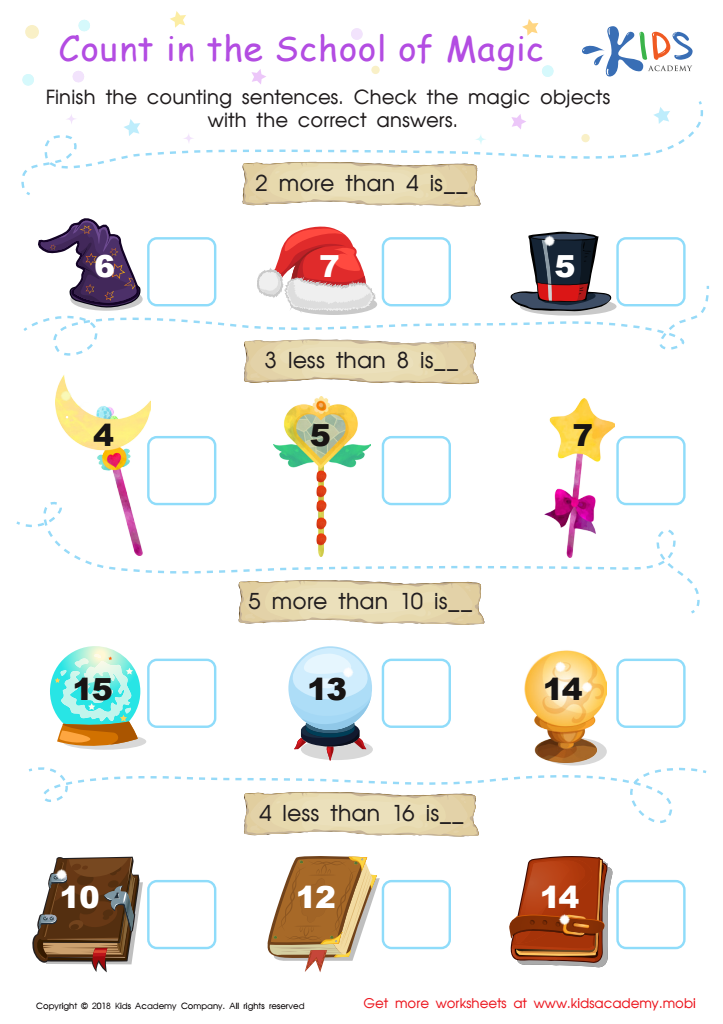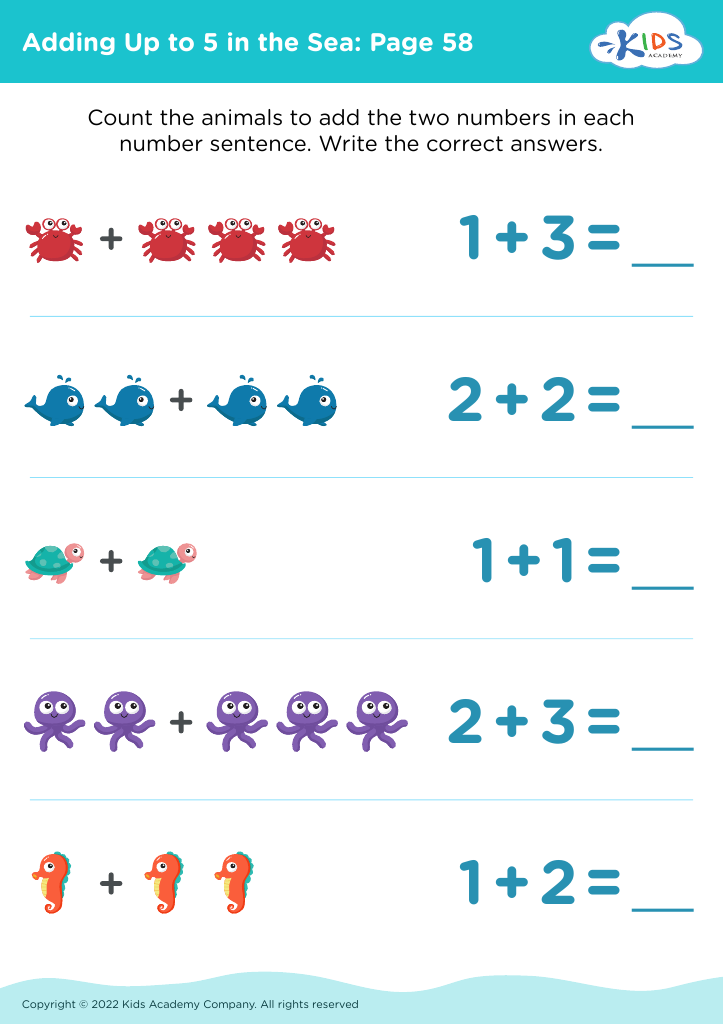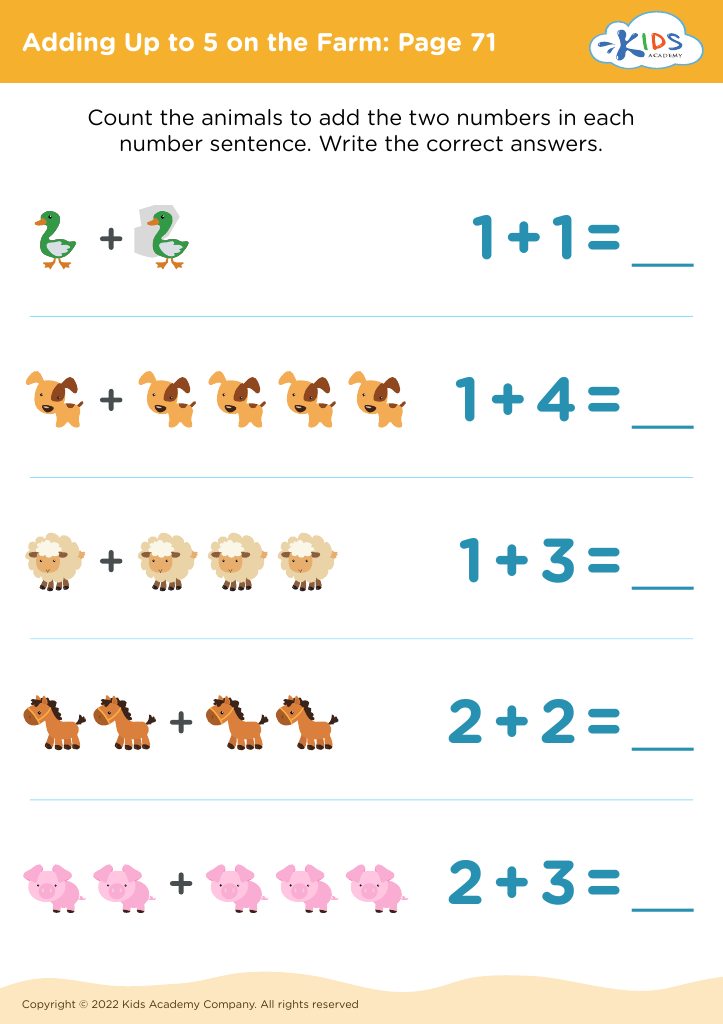Observational skills Addition Worksheets for 5-Year-Olds
3 filtered results
-
From - To
Enhance your 5-year-old's learning experience with our Observational Skills Addition Worksheets! These engaging worksheets are designed to improve focus, attention to detail, and problem-solving abilities while introducing basic addition concepts. Each activity encourages children to observe patterns, identify differences, and solve fun addition problems using vibrant visuals and relatable themes. By integrating visual learning with early math skills, your child can develop a solid foundation for future success. Perfect for at-home practice or classroom activities, these worksheets make learning addition enjoyable and interactive. Help your child build confidence and ignite their curiosity in math with our thoughtfully crafted resources!


Count in the School of Magic Worksheet
Observational skills are crucial for 5-year-olds, especially when it comes to learning addition. At this formative age, children begin understanding basic mathematical concepts, and observational skills significantly enhance their ability to grasp these ideas. When parents and teachers focus on developing a child’s observational skills, they foster a learning environment where children can discover patterns, make connections, and solve problems more effectively.
For instance, observing objects in their surroundings enables children to count, compare, and combine quantities intuitively. By recognizing how many apples are in a basket or identifying groupings of toys, children can see addition in a real-world context, making the concept more meaningful and relatable. This experiential learning nurtures critical thinking and reasoning abilities.
Furthermore, strong observational skills contribute to a child’s overall cognitive development. They promote creativity, attention to detail, and the ability to reflect on experiences. When parents and teachers engage children through activities that encourage observation—such as nature walks, cooking, or interactive games—they not only enhance their addition skills but also cultivate a life-long love of learning. In essence, prioritizing observational skills empowers young learners to thrive academically and personally, building a solid foundation for future mathematical explorations.



 Assign to My Students
Assign to My Students
















